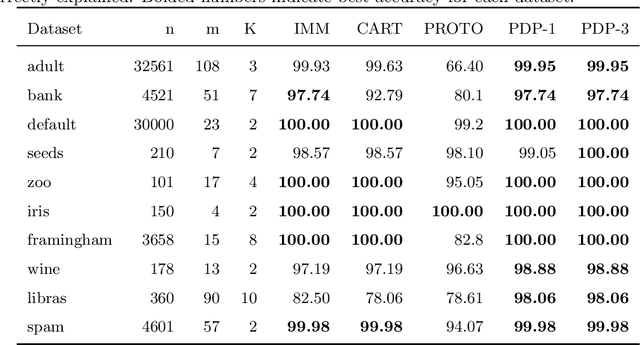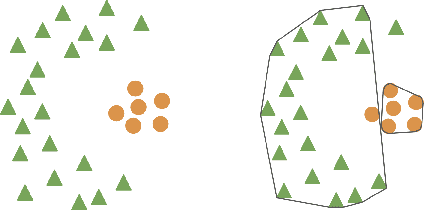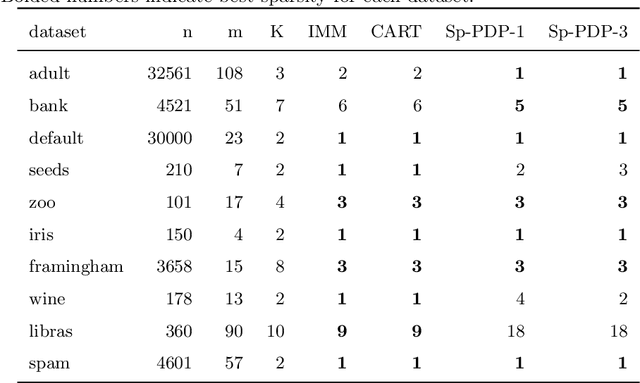Cluster Explanation via Polyhedral Descriptions
Paper and Code
Oct 17, 2022



Clustering is an unsupervised learning problem that aims to partition unlabelled data points into groups with similar features. Traditional clustering algorithms provide limited insight into the groups they find as their main focus is accuracy and not the interpretability of the group assignments. This has spurred a recent line of work on explainable machine learning for clustering. In this paper we focus on the cluster description problem where, given a dataset and its partition into clusters, the task is to explain the clusters. We introduce a new approach to explain clusters by constructing polyhedra around each cluster while minimizing either the complexity of the resulting polyhedra or the number of features used in the description. We formulate the cluster description problem as an integer program and present a column generation approach to search over an exponential number of candidate half-spaces that can be used to build the polyhedra. To deal with large datasets, we introduce a novel grouping scheme that first forms smaller groups of data points and then builds the polyhedra around the grouped data, a strategy which out-performs simply sub-sampling data. Compared to state of the art cluster description algorithms, our approach is able to achieve competitive interpretability with improved description accuracy.
 Add to Chrome
Add to Chrome Add to Firefox
Add to Firefox Add to Edge
Add to Edge